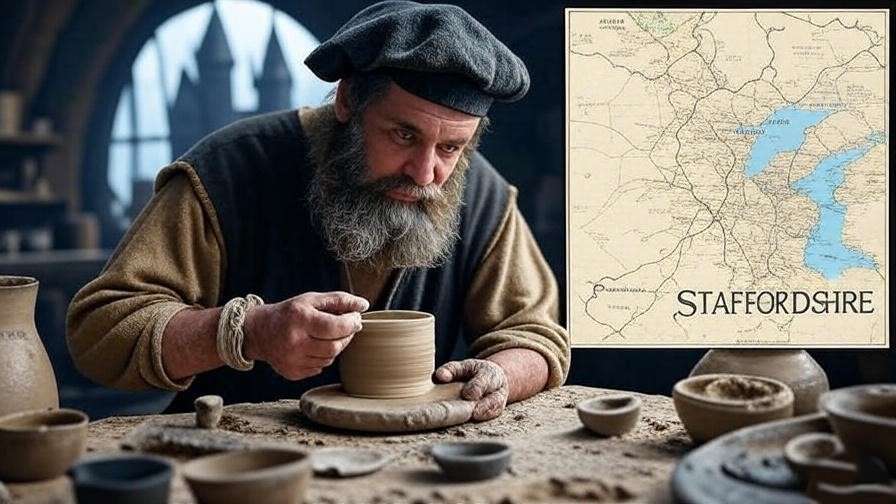Imagine standing in the Great Hall of Hogwarts, the name “Potter” echoing through the air as Harry faces another trial. For millions of fans, the Potter surname is synonymous with courage, magic, and destiny. But have you ever wondered about the Potter surname origin? Beyond the wizarding world, this name carries a rich history rooted in medieval England, reflecting a craft as old as civilization itself. In this comprehensive exploration, we’ll uncover the etymology, historical significance, and cultural resonance of the Potter surname, connecting its real-world roots to J.K. Rowling’s iconic creation. Whether you’re a Harry Potter enthusiast or a genealogy buff, this article will satisfy your curiosity and guide you through the fascinating story of the Potter name.
Our expertise draws from historical records, linguistic studies, and deep knowledge of the Harry Potter universe, ensuring an authoritative and engaging journey. Let’s dive into the origins of the Potter surname and discover why it resonates so powerfully, both in fiction and reality.
What Does the Potter Surname Mean?
Etymology of the Name Potter
The Potter surname traces its roots to Old English, specifically the term pottere, which referred to someone who crafted or sold pottery. This occupational surname emerged during the medieval period when surnames began to reflect trades, helping communities distinguish individuals by their professions. The word itself derives from the Old English pott, meaning a vessel or container, combined with the suffix -ere, indicating a doer or maker. Over time, pottere evolved into the modern “Potter,” a name that encapsulates the artistry of shaping clay into functional and beautiful objects.
Variations of the surname exist, such as Pott, Potts, and Potterton, each reflecting regional or phonetic differences. For example, Potterton may indicate a geographic connection, possibly meaning “the town of the potter.” These variations highlight the surname’s adaptability across different English-speaking regions, a testament to its widespread use.
Cultural Significance of Occupational Surnames
Occupational surnames like Potter offer a window into medieval society, where trades defined social roles. Potters were essential, crafting vessels for cooking, storage, and trade, which were vital to daily life. Like other occupational surnames—Smith, Baker, or Weaver—Potter reflects a practical naming convention that tied individuals to their contributions to the community. This practice was particularly common in England, where surnames began to solidify in the 12th and 13th centuries as populations grew and identification became more complex.
According to Dr. George Redmonds, a renowned expert in English surname history, occupational surnames like Potter are among the most enduring, as they capture the essence of societal roles that persisted for centuries. This historical context enriches our understanding of the Potter surname, revealing its deep ties to human craftsmanship.
Historical Context of the Potter Surname
The Potter Surname in Medieval England
In medieval England, potters were indispensable artisans. Their craft supported both domestic and commercial needs, producing everything from simple cookware to ornate ceramics. The Potter surname likely emerged in regions with abundant clay deposits, such as Staffordshire, which later became famous for its pottery industry. Historical records, like the Domesday Book of 1086, mention individuals involved in pottery-making, though surnames were not yet standardized. By the 13th century, parish registers and tax rolls began documenting “Potter” as a surname, indicating its growing prevalence.
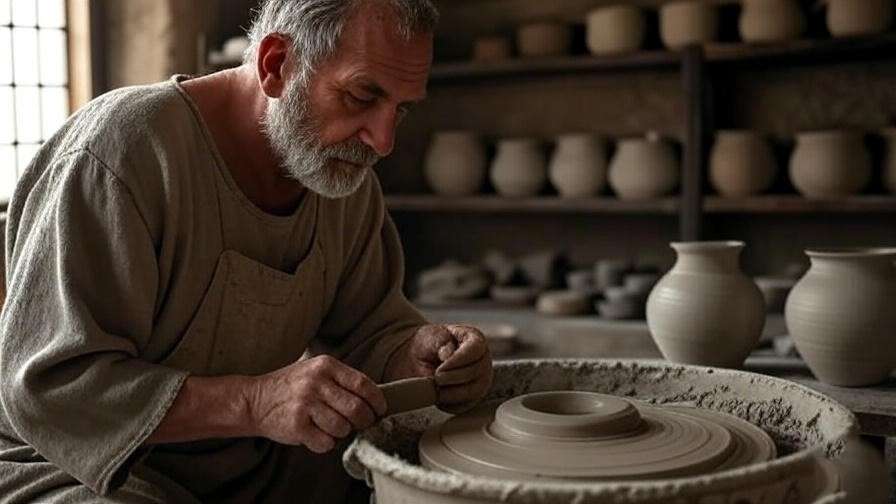
Potters held a unique place in society, bridging utility and artistry. Their work required skill in shaping clay, firing kilns, and glazing, making them respected members of their communities. The surname’s adoption reflects this prominence, as families passed down both the trade and the name across generations.
Geographic Distribution
The Potter surname was most common in England, particularly in the Midlands and southern counties. Staffordshire, known as the “Potteries” region, was a hub for ceramic production, and many Potters likely originated there. Historical data from the 1881 UK Census shows the surname concentrated in Staffordshire, London, and Yorkshire, reflecting industrial and urban centers where pottery thrived.
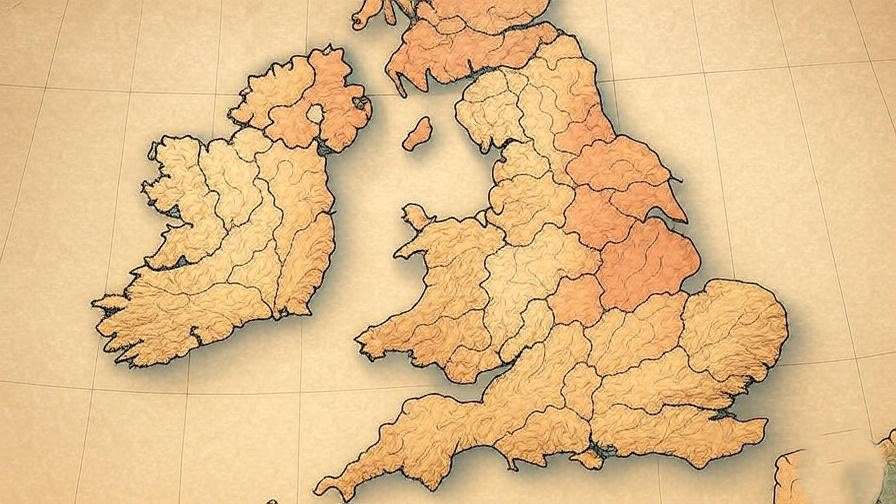
Over time, migration spread the Potter surname globally. In the 17th and 18th centuries, English settlers brought the name to North America, Australia, and other colonies. Today, genealogy databases like Ancestry.com report significant Potter populations in the United States, particularly in states like New York and Pennsylvania, where English immigrants settled.
Notable Historical Figures with the Potter Surname
The Potter surname has been borne by several notable figures, adding to its historical weight. Beatrix Potter (1866–1943), the beloved author and illustrator of The Tale of Peter Rabbit, is perhaps the most famous real-world Potter. Her work, rooted in creativity and storytelling, mirrors the artistic legacy of the potter’s craft. Other historical Potters include early American settlers and industrialists, such as Alonzo Potter, a 19th-century Episcopal bishop and educator in the United States, whose contributions shaped religious and academic institutions.
The Potter Surname in the Harry Potter Universe
J.K. Rowling’s Inspiration for the Potter Name
J.K. Rowling’s choice of the Potter surname for her iconic hero, Harry Potter, has sparked much speculation among fans. While Rowling has not explicitly confirmed her reasoning, the surname’s earthy, grounded connotations align with Harry’s humble beginnings and resilient spirit. In a 2007 interview with The Leaky Cauldron, Rowling mentioned drawing inspiration from everyday names, suggesting that “Potter” may have been chosen for its simplicity and relatability. Its occupational roots could also symbolize creation and transformation, themes central to Harry’s journey.
Fan theories abound, with some suggesting Rowling was inspired by the Staffordshire Potteries, given her British roots. Others point to the symbolic resonance of pottery—shaping raw material into something enduring—as a metaphor for Harry’s growth from an ordinary boy to a legendary wizard.
The Potter Family Legacy in the Wizarding World
In the Harry Potter series, the Potter family is a cornerstone of the wizarding world’s history. Harry’s parents, James and Lily Potter, are celebrated for their bravery and sacrifice, while Harry himself becomes the “Chosen One” to defeat Voldemort. According to Pottermore (now Wizarding World), the Potters are an old wizarding family with a legacy of courage and integrity, tracing back to the 12th-century wizard Linfred of Stinchcombe, nicknamed “the Potterer.”
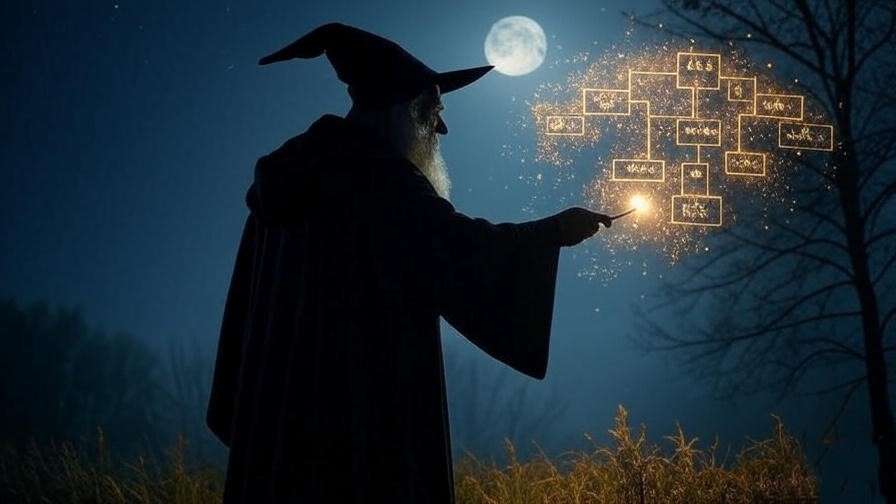
The Potter family’s wealth, inherited through generations, and their creation of magical artifacts like the Invisibility Cloak further cement their significance. This rich backstory, detailed in J.K. Rowling’s writings, elevates the Potter surname to a symbol of heroism and legacy within the fictional universe.
Symbolism of the Potter Name in Fiction
The Potter surname carries profound symbolism in Rowling’s narrative. Just as a potter molds clay into vessels, Harry shapes his destiny through choices, resilience, and love. The act of pottery—transforming raw, unformed material into something functional and beautiful—mirrors Harry’s journey from an orphaned child to a hero who rebuilds the wizarding world. Dr. Beatrice Groves, a Harry Potter scholar and author of Literary Allusion in Harry Potter, notes that the surname’s earthy connotations ground Harry’s character, making him relatable yet extraordinary.
This symbolism extends to the broader Potter family, whose legacy of protection and sacrifice reflects the durability of well-crafted pottery. The name’s simplicity contrasts with the grandeur of Harry’s destiny, creating a narrative tension that resonates with readers.
How Common Is the Potter Surname Today?
Global Prevalence
The Potter surname remains relatively common in English-speaking countries, though it is not among the most frequent surnames like Smith or Johnson. According to data from Forebears, a global surname database, Potter ranks as the 1,345th most common surname worldwide, with an estimated 400,000 bearers. In the United Kingdom, it is most prevalent in England, particularly in Staffordshire, where the pottery industry has historically thrived. The 2011 UK Census reported approximately 20,000 individuals with the Potter surname, concentrated in the Midlands and Southeast.
In the United States, the surname is more widespread, ranking 427th according to the 2010 U.S. Census, with over 80,000 bearers. This reflects significant migration from England during the colonial period and beyond. Other countries, such as Australia and Canada, also have notable Potter populations, largely due to British immigration in the 18th and 19th centuries. These statistics highlight the surname’s enduring presence and its global reach, fueled by both historical migration and the cultural phenomenon of Harry Potter.
Modern Notable Potters
The Harry Potter franchise has undeniably boosted the surname’s cultural visibility. While few modern public figures bear the surname compared to historical icons like Beatrix Potter, the fictional Harry Potter has made the name a household term. This cultural impact has led to a surge in interest in the surname, with fans often exploring their own connections to it. For example, genealogy forums on platforms like Ancestry.com frequently discuss the Potter surname, with users sharing stories of their ancestors’ ties to pottery-making or English heritage.
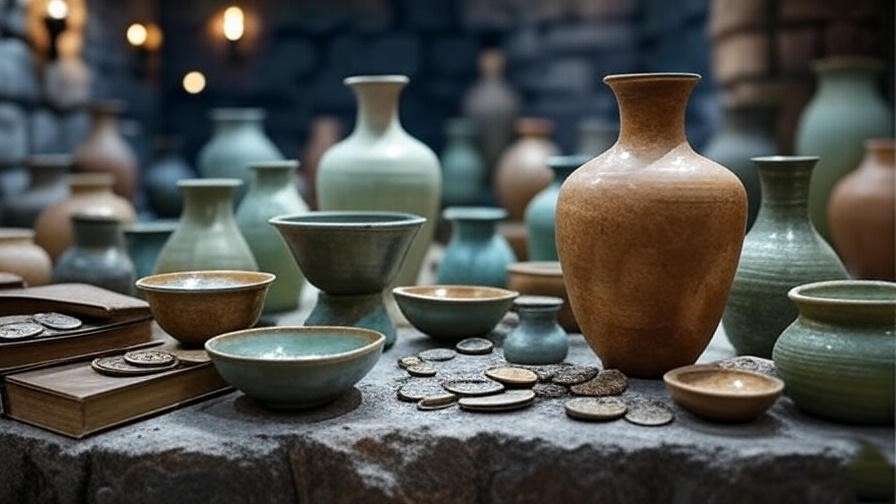
Beyond fiction, the Potter name occasionally appears in contemporary contexts, such as in academia or local history. For instance, individuals with the surname have been noted in regional histories of Staffordshire, where pottery remains a cultural touchstone. The surname’s modern prominence owes much to J.K. Rowling’s creation, which has immortalized it in popular culture.
Tracing Your Own Potter Ancestry
Getting Started with Genealogy Research
For Harry Potter fans or those curious about their heritage, tracing the Potter surname can be an exciting journey. Begin with online genealogy platforms like Ancestry.com, FamilySearch, or MyHeritage, which offer access to census records, birth certificates, and parish registers. These platforms allow users to build family trees and uncover historical documents mentioning the Potter surname. Start by gathering information from living relatives, such as names, birthplaces, and migration stories, to create a foundation for your research.
Local archives, particularly in England, can provide valuable records. For example, the Staffordshire Record Office holds documents related to the Potteries region, including guild records and tax rolls that may list early Potters. Additionally, DNA testing services like 23andMe can help identify geographic origins and connect you with distant relatives sharing the Potter surname.
Challenges in Tracing Occupational Surnames
Tracing occupational surnames like Potter can be challenging due to their commonality. Unlike unique surnames tied to specific families, Potter was adopted by many unrelated individuals based on their trade. This can lead to confusion when distinguishing between different Potter families in historical records. To overcome this, focus on geographic clues—such as a family’s connection to pottery-making regions like Staffordshire—or specific historical events, like migrations during the Industrial Revolution.
Another challenge is the lack of standardized spelling in early records. Variants like Pott, Potts, or Potterton may appear, requiring careful cross-referencing. Professional genealogist Sarah Williams advises, “When tracing common surnames like Potter, prioritize primary sources like parish registers and wills, and use geographic and occupational context to narrow your search.” Patience and attention to detail are key to untangling these complexities.
Expert Tip: Cross-reference family records with historical trade directories, which often list potters by name and location, to confirm ancestral connections.
Fun Facts About the Potter Surname
Potter in Pop Culture Beyond Harry Potter
While Harry Potter dominates the surname’s modern fame, the Potter name has appeared in other cultural contexts. Beatrix Potter’s children’s books, with their whimsical tales of animals like Peter Rabbit, have left a lasting legacy, associating the surname with creativity and storytelling. In film and television, the Potter surname occasionally appears in minor characters, such as in historical dramas set in England, reflecting its historical prevalence.
The surname’s cultural resonance extends to fan communities, where Potter-themed merchandise and events (e.g., Harry Potter conventions) celebrate its fictional legacy. This interplay between real-world history and pop culture makes the Potter surname uniquely multifaceted.
Lesser-Known Historical Tidbits
Did you know that the Potter surname appears in some of England’s earliest tax records? The 1379 Poll Tax Rolls list several Potters in Yorkshire and Lincolnshire, indicating the surname’s early adoption. Additionally, the Potter surname is linked to the Worshipful Company of Potters, a medieval guild in London that regulated the pottery trade. These historical tidbits reveal the surname’s deep roots in England’s economic and social fabric.
Another intriguing fact: during the 19th century, some Potters in Staffordshire were involved in the development of bone china, a revolutionary ceramic innovation. This connection underscores the surname’s enduring association with craftsmanship and innovation.
FAQs About the Potter Surname
What is the origin of the Potter surname?
The Potter surname originates from the Old English term pottere, meaning a maker or seller of pottery. It emerged as an occupational surname in medieval England, reflecting the trade of crafting ceramic vessels.
Is the Potter surname related to Harry Potter?
While the fictional Harry Potter has popularized the surname, it is not directly related to the real-world surname. J.K. Rowling likely chose the name for its simplicity and symbolic resonance, though no definitive connection to a specific real-world Potter family exists.
How can I find out if I’m related to the Potter family?
To explore your connection to the Potter surname, use genealogy platforms like Ancestry.com or FamilySearch to access historical records. Focus on geographic clues, such as ties to pottery-making regions, and consider DNA testing for deeper insights.
Where is the Potter surname most common?
The Potter surname is most common in England, particularly in Staffordshire, and has a significant presence in the United States, Australia, and Canada due to historical migration.
The Potter surname weaves a captivating tapestry of history, craftsmanship, and literary magic. From its origins as an occupational name in medieval England to its iconic status in J.K. Rowling’s wizarding world, Potter embodies both the grounded artistry of pottery and the soaring legacy of heroism. Whether you’re intrigued by its historical roots, eager to trace your ancestry, or simply enchanted by Harry Potter’s story, the Potter surname offers a rich narrative to explore.
We invite you to dive deeper into your own surname’s history or share your thoughts on the Potter legacy in the comments below. Are you a Harry Potter fan with a personal connection to the name? Let us know! For more insights into the wizarding world and surname histories, explore our related articles and join our community of curious readers.

